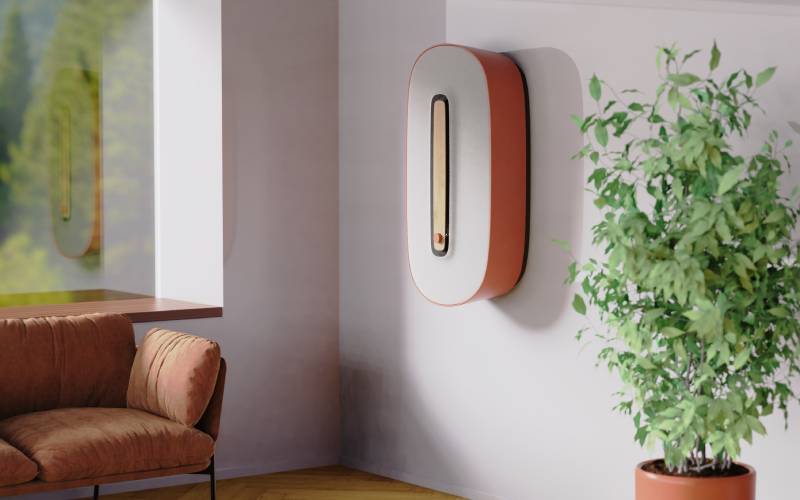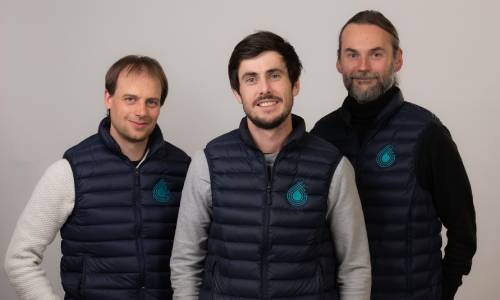
In the face of successive heatwaves, sales of air conditioning units are soaring. But this is an environmental aberration, because although “aircon” cools indoors, it heats the ambient air outdoors. Starting from this observation, Rémi Perony, co-founder of Caeli Energie, had the idea of updating the principle of the “desert fridge”. While the operating principle of classic air conditioning units is based on the compression/decompression of a refrigerant fluid (which, moreover, will be very strongly constrained by European legislation in forthcoming years), producing cold on one side and heat on the other, Caeli’s air conditioning unit is based on the principle of indirect adiabatic dew point cooling. Perony explains: “It’s a bit like the principle of cooling yourself with a wet towel: the water evaporates and the change of endothermic state cools the room. It works well, but it does increase the humidity in the room and the thermodynamic constraints mean that you can't achieve a very low temperature.”
The strength of Caeli Energie’s system is that it is indirect and therefore there is no increase in the humidity of the room being cooled. “To achieve this, our product includes a patented evaporative heat exchanger that we manufacture ourselves from paper and plastic from recycled bottles.” The cooling performance gives adequate levels of comfort and the equipment is compact.

The start-up has just completed a second round of fundraising which has yielded €10m, enabling it to continue developing its air conditioning unit, improving its power, compactness and recyclability. The regional Escapade project, which involves LGP2*, a partner of Grenoble INP – Pagora, UGA, is financing a thesis studying capillarity phenomena within the cellulosic structure in order to better understand how water diffuses in such systems. LGP2’s is tasked with developing a better understanding of how the nature of unwoven materials influences capillarity phenomena and optimising them in order to improve performance and recyclability. Every year, the start-up offers students from Grenoble INP-Ense3 UGA the opportunity to do their final projects on improving the mechanical aspects of the air conditioning unit.
Caeli Energie, which has already made and installed around 50 prototypes (care homes, social housing providers, etc.) also intends to multiply its production capacity by 50 thanks to a new automated production line. Next year, it aims to start selling its product to private customers.
* Laboratory of Process Engineering for Biorefinery, Bio-based Materials and Functional Printing: CNRS, UGA, Grenoble INP – UGA, Agefpi


